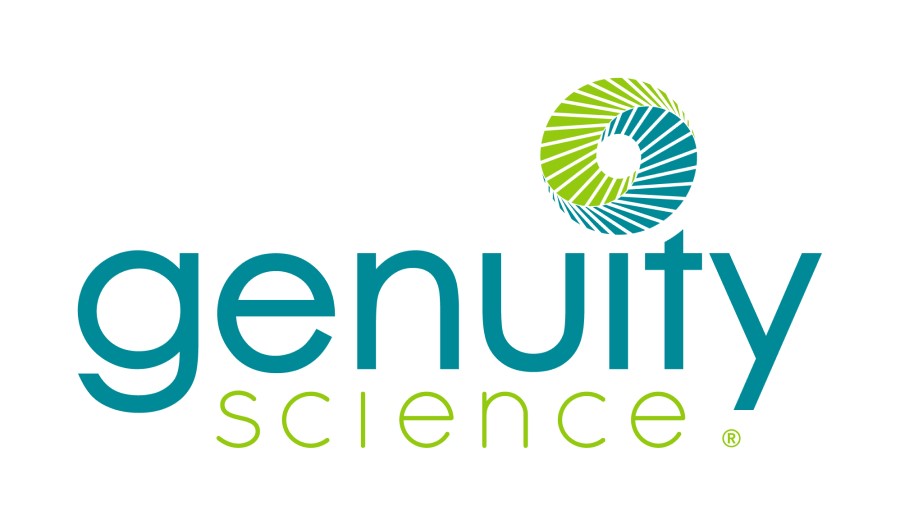Genuity Science is bringing together a distinguished panel of experts from academia, research and industry to discuss opportunities and advancements in developing better treatments for systemic lupus erythematosus (SLE). SLE is a chronic and relapsing autoimmune disease characterized by a break-down of self-tolerance that leads to tissue inflammation and multiorgan damage.
SLE is extremely heterogeneous in nature, with the signs and symptoms varying from person to person, which can often lead to delays in diagnosis. The treatment landscape for SLE today is comprised primarily of non-specific therapies such as antimalarials, corticosteroids, immunosuppressants and biologics. These treatments are often unsuccessful in treating the patients — particularly those with a more severe form of the disease — and longer term, these treatments can be associated with several side effects including infections, hepatotoxicity, osteoporosis and more. Episodic flares of symptoms frequently necessitate changes in medications or dosages, further complicating management of the disease.
Register for this webinar to hear an examination of why researching lupus is so complex and the fundamental challenges of SLE research. We will also explore where the field has advanced and where opportunities to deepen understanding still exist in order to accelerate the development of new drugs for this underserved group of patients.
Speakers

Richard Furie, Chief, Division of Rheumatology, Northwell Health; Professor of Medicine, Zucker School of Medicine at Hofstra/Northwell
Dr. Richard Furie, Chief of the Division of Rheumatology at Northwell Health, is a rheumatologist whose activities for the last several decades have focused on patient care, physician education, and clinical research in the area of anti-rheumatic drug development. He directs The Program in Novel Therapeutics, the Health System’s clinical research program in musculoskeletal disease. He also directs the Hospital’s SLE and Autoimmune Disease Treatment Center, which has become internationally recognized for its role in the development of new therapies for SLE. Regarded as one of the senior rheumatologists in the New York metropolitan area, he has served as a volunteer for the local chapters of the Arthritis Foundation and the Lupus Alliance, the Lupus Foundation of America, the SLE Foundation, the Lupus Research Alliance, and Lupus Therapeutics. For twenty years he served on many committees of the American College of Rheumatology and was named a Master of the College in 2018. Although often featured as a speaker at national and international conferences, Dr. Furie’s favorite educational venue is at home with his colleagues and trainees.

Michelle Petri, M.D., Professor of Medicine, Johns Hopkins University School of Medicine
Michelle Petri, M.D. is a Professor of Medicine at the Johns Hopkins University School of Medicine. She attended medical school at Harvard University and fulfilled her internal medicine residency at the Massachusetts General Hospital. In addition, she completed two fellowship programs at the University of California, San Francisco in allergy and immunology and rheumatology. Dr. Petri is the Director of the Hopkins Lupus Cohort, a longitudinal study of morbidity and mortality in systemic lupus erythematosus, and Co-Director of the Hopkins Lupus Pregnancy Center.

Keith Elkon, M.D., Professor of Medicine and Immunology, Co-Director of the Center for Innate Immunity and Immune Diseases, University of Washington
Keith Elkon, M.D. is Professor of Medicine and Immunology and Co-Director of the Center for Innate Immunity and Immune Diseases at the University of Washington (UW), Seattle. He served as head of the Division of Rheumatology for 20 years. Dr. Elkon’s research objective is to better define the molecular basis for systemic autoimmune diseases such as lupus (SLE). He has made a number of contributions to the field including studies of autoantibodies, pathways of apoptosis and processing of apoptotic cells. His current studies focus on how cell debris, particularly nucleic acids, lead to inflammation and type 1 interferon expression. He has also pioneered therapeutic strategies to prevent nucleic acid stimulation of inflammation. Dr. Elkon has served on the editorial boards of many journals, been a member of numerous NIH Study Sections as well as the Lupus Research Institute Scientific Advisory Board, National Arthritis Foundation Medical and Scientific Advisory Board. He is a past president of the Henry Kunkel Society. He received NIH Research Career Development Award and was named a University of Washington CoMotion Presidential Innovation Fellow. He is a Master of the American College of Rheumatology.

Professor Ian N. Bruce, MD, FRCP, Director, NIHR Manchester Biomedical Research Centre, University of Manchester, United Kingdom
Ian Bruce is a National Institute of Health Research (NIHR) Senior Investigator and Professor of Rheumatology at the Centre for Musculoskeletal Research, University of Manchester. He is Director of The NIHR Manchester Biomedical Research Centre. Professor Bruce qualified in medicine from Queen’s University Belfast in 1988 and gained his MRCP in 1991. He trained in medicine and rheumatology in Northern Ireland and completed his MD thesis on the pathogenesis of systemic vasculitis in 1995. He was the Geoff Carr Lupus Fellow at the University of Toronto with Murray Urowitz and Dafna Gladman (1996-98) before moving to Manchester in 1998. Professor Bruce is former Chair of the Systemic Lupus International Collaborating Clinics (SLICC) group and a member of the British Isles Lupus Assessment Group (BILAG). He leads the BILAG Biologics Register for SLE and is Chief Investigator of the MASTERPLANS consortium, an MRC[1]funded stratified medicine consortium focusing on SLE. He also serves on Data Safety Monitoring Committees in several commercial and academic clinical trials and s Chair of the Astra Zeneca Anifrolumab Steering Group. Professor Bruce’s research is focused on the association between inflammatory rheumatic diseases and premature atherosclerosis/coronary heart disease as well as stratified medicine in SLE.

John Dowling, Sales VP, Genuity Science (Moderator)
John Dowling is the Vice President of US Cohort Sales for Genuity Science. He has over 25 years of experience in drug discovery, next generation sequencing, natural language processing, AI/ML and genomic data services. John holds a M.S. degree in ALM and Biology from Harvard University and a B.S. in Mechanical Engineering from Massachusetts Maritime Academy.
Who Should Attend?
- Program lead/head of rheumatology at pharma and biotech companies
- Head of or VP/SVP translational medicine, genomics, innovation, drug discovery, technology, clinical trials at pharma companies
- Clinical researchers at hospitals and specialist consultants in rheumatology and clinical immunology
- Researchers and research leadership, head of school functions and technology transfer officers at academic institutions conducting research in genomics, genetics, systems biology, translational medicine, human health, rheumatology, and immunology
- Research institutions
- Patients
- SLE patient advocacy groups
What You Will Learn
In this webinar, participants will learn about:
- Advancements and critical milestones to date in SLE research and drug discovery
- Key considerations for improving research into SLE
- Key considerations for improving drug discovery and clinical trial design for SLE
Xtalks Partner
Genuity Science
Genuity Science is a data sourcing, analytics and insights organization headquartered in Boston, Massachusetts, USA, with offices in Dublin, Ireland and Reykjavik, Iceland. Genuity Science partners with global biopharma companies to offer deep end-to-end discovery services aimed at catalyzing precision health and improving the quality of life for patients around the world. Services include population-scale, disease-specific data sourcing, high-quality sequencing, robust statistical analysis and software tools for analyzing large datasets and artificial intelligence (AI). The company operates advanced CAP-accredited, CLIA-certified genomics laboratories in Woburn, Massachusetts, USA and in Dublin, Ireland and is deeply committed to data stewardship and data governance across its global offices. Learn more at www.genuitysci.com.
You Must Login To Register for this Free Webinar
Already have an account? LOGIN HERE. If you don’t have an account you need to create a free account.
Create Account

